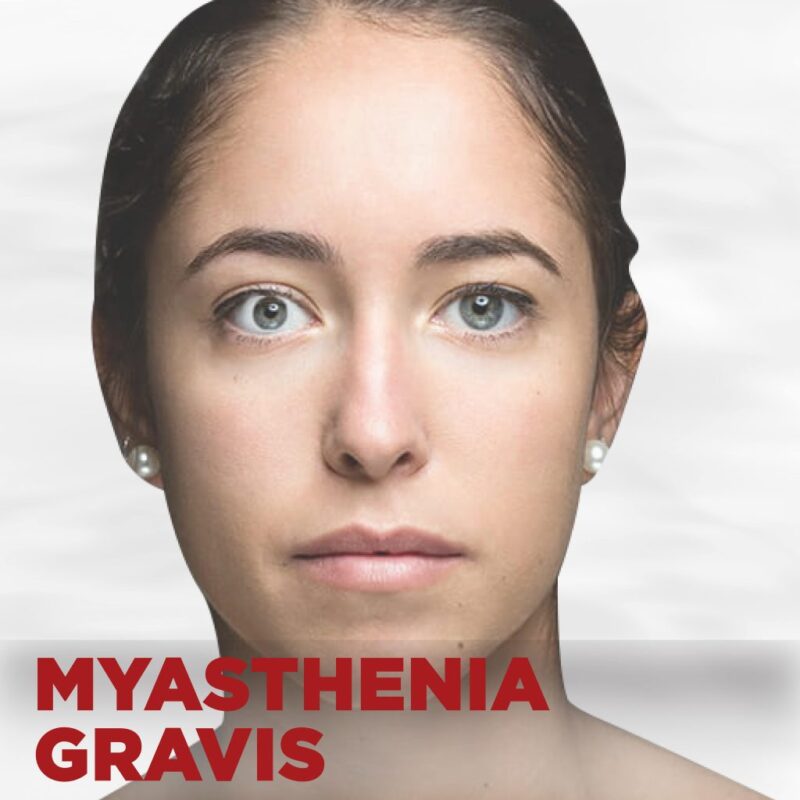Myasthenia Gravis (MG) is a rare neuromuscular disorder that affects individuals of all ages, causing muscle weakness and fatigue. While there is no cure for MG, various treatment options aim to manage symptoms and improve the quality of life for those diagnosed with this challenging condition.
In recent years, infusion therapy has emerged as a promising avenue for alleviating the effects of Myasthenia Gravis.
In this blog, you will learn about Myasthenia Gravis and what causes it. Moreover, you will also get complete information about biological infusion therapy for Myasthenia Gravis and how it can benefit you:
Myasthenia Gravis
Before delving into the goal of infusion therapy treatment, it is imperative to grasp the fundamentals of Myasthenia Gravis. This autoimmune disease arises when the body’s immune system inadvertently attacks the receptors responsible for transmitting signals from the nerves to the muscles.
As a result, fatigue and muscle weakness set in, often affecting the facial muscles, swallowing function, and breathing.
Causes of Myasthenia Gravis
The exact cause of the autoimmune disease Myasthenia Gravis is unknown, but problems with the thymus gland or aberrant antibodies may be the cause of MG, according to the Muscular Dystrophy Association (MDA). People may have a higher likelihood of developing MG as they get older.
Autoimmune diseases arise when healthy tissue is mistakenly attacked by your immune system. In MG, antibodies—proteins that normally protect the body from foreign, dangerous substances—attack nerve cells.
When the neuromuscular membrane is disrupted, the neurotransmitter acetylcholine, which is necessary for nerve cells and muscles to communicate with one another, is less effective. The result is a weakening of the muscles.
Exactly where this immune response originated is unknown to scientists. Acetylcholine may be attacked by the body due to certain viral or bacterial proteins, according to the MDA.
A family history of autoimmune illnesses may also increase your risk of developing an MG or other autoimmune ailment.
Thyroid Gland Abnormalities
Well, the abnormalities of the thyroid gland are also associated with the development of Myasthenia Gravis. Your thymus gland controls regular immune functions and grows normally till puberty. After puberty, the gland’s size shrinks.
According to the National Institute of Neurological Disorders and Stroke (NINDS), people with MG still have large thymus glands.
Furthermore, tumors of either benign or malignant nature may develop in the thymus gland, impeding the production of vital immune cells such as T cells. The larger thymus gland also produces antibodies that block acetylcholine.
According to the MDA, around 75% of MG patients have thymic hyperplasia, while 15% of MG patients have tumors.
Because of this, your immune system may be erroneously trained by the thymus gland, which may lead to immune cell death and the development of myasthenia gravis, according to researchers.
Traditional Treatments
Historically, MG has been managed with medications such as acetylcholinesterase inhibitors and immunosuppressants. These medications work by either increasing the availability of acetylcholine or modulating the immune response. However, not all patients respond optimally to these conventional treatments, prompting the exploration of alternative therapeutic approaches.
The Rise of Infusion Therapy
Infusion therapy involves the administration of medication through a needle or catheter directly into the bloodstream. In the context of Myasthenia Gravis, infusions are gaining popularity as they offer a targeted and potent way to address the underlying immune system dysfunction.
The Benefits of Infusions for Myasthenia Gravis
Well, biologic infusion therapy is one of the best and most advanced treatments for Myasthenia Gravis. This means that specialized biologics, which are medications, are infused into your body. Following are the benefits you get when you receive biologic infusion therapy:
- Accurate Dosing and Controlled Medication Delivery: Infusion therapy guarantees that patients receive the appropriate dosage of medication at the appropriate time.
- Fast Onset of Action: Compared to oral treatments, certain infusion-administered drugs function more quickly, offering immediate relief from MG symptoms.
- Lessened Side Effects: Infusion therapy can improve patient compliance and tolerance by reducing the gastrointestinal side effects of some drugs by avoiding the digestive tract.
- Longer Lasting Effects: Compared to conventional oral drugs, infusions can provide prolonged therapeutic effects, lowering the frequency of treatments.
- Tailored Treatment Plans: Medical practitioners can customize infusion schedules to meet the specific requirements of each patient, increasing the likelihood of a favorable outcome.
Infusion Therapies for Myasthenia Gravis
Some of the infusion therapies for Myasthenia Gravis are listed below:
Intravenous Immunoglobulin (IVIg)
IVIg regulates the immune system and lessens the consequences of MG by injecting concentrated antibodies from several donors into the patient’s bloodstream.
Plasma Exchange (PLEX)
PLEX, also known as plasmapheresis, involves removing and replacing the plasma in the patient’s blood to eliminate harmful antibodies and immune system components.
Monoclonal Antibody Therapies
Emerging therapies, such as monoclonal antibodies like Rituximab, target specific components of the immune system, offering a more tailored approach to MG management.
Myasthenia Gravis treatment discovered a promising new direction with infusion therapy, which offers a sophisticated and practical method of handling this intricate autoimmune condition.
People who experience MG look forward to a more tailored and personalized treatment in the future as science continues to solve the mysteries of the ailment and new therapeutic alternatives emerge.
The best course of action should always be decided in consultation with medical professionals, taking into account each patient’s unique needs and medical background.
Biologics for Myasthenia Gravis Treatment
Following are some of the antibody-based biologics that are the approved biologics for specific types of MG:
- Patients with refractory MG who test positive for AchR can take efgartigimod (Vyvgart®) and eculizumab (Soliris®).
- Rituximab (Rituxan®) is an option for patients with refractory MG who test positive for MuSK.
- Those who have generalized MG and AChR positivity can use Ultomiris® (ravulizumab-cwvz).
In essence, these biologics are the medicine for myasthenia gravis. If you are unclear about the type of MG you have, speak with your physician.
It is usual practice to administer biological medications intravenously. Allergies and infusion-related reactions are possible. Your physician will watch you and look out for such problems.
If you experience a severe reaction to a biological infusion, you may need to discontinue the medicine.
Before beginning biologics for myasthenia gravis, tell your doctor about all of your medical issues as well as any medications, vitamins, and supplements you use. These also include over-the-counter medicines.
Book Appointment Today at Fuse Infusion for Myasthenia Gravis Treatment
If your doctor has recommended biological therapy treatment for myasthenia gravis, we at Fuse Infusion offer you the best treatment services. We treat myasthenia gravis through myasthenia gravis medications, which are specialized biologics, and help our patients overcome this chronic disease.
Each Fuse Infusion patient receives direct care and treatment from our licensed professionals throughout biological infusion therapy, providing thorough medical management.
At Fuse Infusion, we believe in offering premium-quality services to our patients. So, contact us to receive a biologic infusion therapy today!

